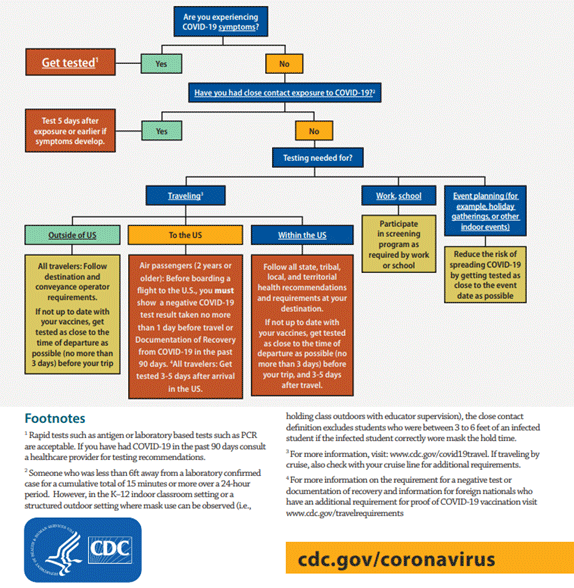


Joseph R. Anticaglia, MD
Medical Advisory Board
People are getting mixed signals from the authorities concerning who should get tested, and treated for COVID-19? Also, there is confusion as to when is the best time to be tested for COVID-19? Annabella was delighted to be her sister’s bridesmaid. She had a wonderful time at the wedding, dancing, and chatting with many guests. The next day, she wondered, “Should I get tested for COVID?” She didn’t complain of any symptoms, and decided not to test for the virus.
Bill had lunch with three of his friends. Two days later, he learned that one of his friends tested positive for COVID-19. That same day, Bill’s at-home COVID-19 test was negative. One week later, he complained of a cough sore throat, fever, chills, headache, and fatigue. Once again, Bill swabbed his nose, and took the at- home COVID-19 test. This time, Bill tested positive for the virus.
People with COVID-19 can have mild symptoms to severe illness. Symptoms can appear two to 14 days after being exposed to the virus. In Bill’s case, it took more than two days before COVID symptoms appeared, and for him to test positive for COVID-19. Generally, test at least 5 days after known or suspected close contact to COVID-19, or earlier, if symptoms develop.
In addition to Bill’s symptoms noted above, individuals might experience loss of taste or smell, shortness of breath, stuffy nose, muscle or body aches, and G. I. complaints such as nausea, vomiting, or diarrhea. Children have similar symptoms to adults and generally have mild illness.
In certain situations, it is recommended that you be tested if you don’t have COVID symptoms. For example, if you are a health care worker, work at school , or first responder. If you’re travelling to the United States, or outside of the U. S. or within the United States, you ought to get tested (check latest recommendations).
Also get tested, if you are a resident, or staff of certain facilities, such as nursing homes, assisted living facilities, managed residential communities, or work at correctional institutions. What follows is a flow chart for people with, and without COVID-19 symptoms.

1) Antigen Test determines if you have an active COVID-19 infection. It is an at-home COVID-19 test that uses a nasal swab to look for proteins, called antigens, on the surface of the virus. The test is inexpensive, and fast. You get the results in 15 to 30 minutes.
2) Molecular (PCR) test uses a nasal swab to obtain the specimen, which is placed in a test tube, and sent to a laboratory to determine if you have an active infection. The PCR test look for genetic material, and depending on the laboratory, might take a day or two to get the results.
If you have symptoms of COVID-19, such as fever, chills, cough, or difficulty breathing, you should get tested for the virus. If you have been exposed to someone with COVID-19, consider waiting 5 days before being tested to avoid a false negative result as noted in Bill’s experience above. Why? The incubation period for COVID-19 is two to twelve days before the virus is detectable.
Testing guidelines are likely to be updated as variants to the virus appear, and circumstances change. If you test positive for the coronavirus, visit your family doctor to discuss the current treatment options.
The CDC, on June 10,2024, rescinded the Order requiring persons to show a negative COVID-19 test result, or documentation of recovery from COVID-19 before boarding a flight to the United States.
PCR — polymerase chain reaction
This article is intended solely as a learning experience. Please consult your physician for diagnostic and treatment options.